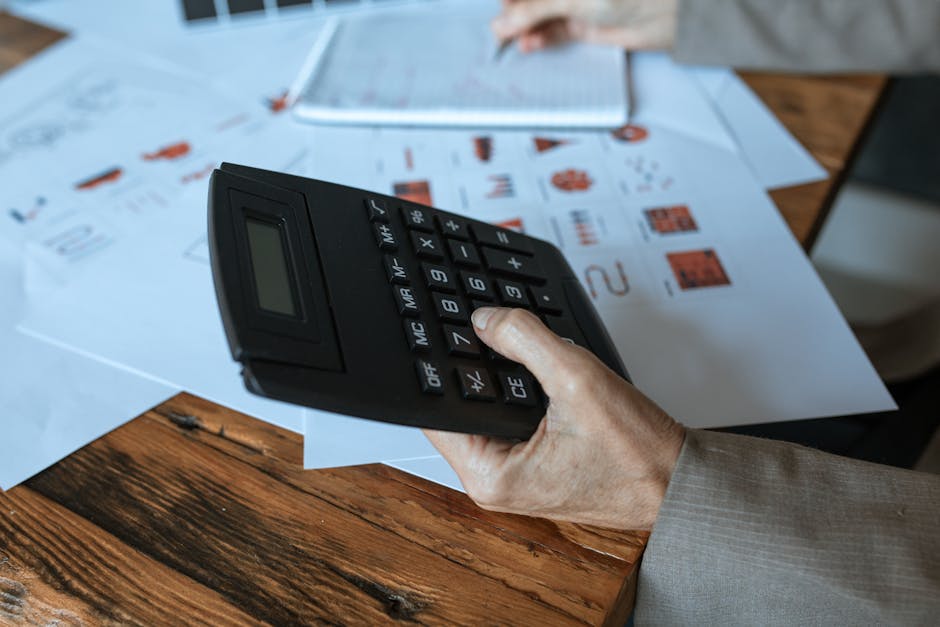The Importance of Taking Breaks and Resting During Work Hours
Are you feeling drained, even though you’re working non-stop? It’s time to discover the power of taking breaks during your workday. This isn’t just about grabbing a quick coffee. It’s about understanding how rest can boost your productivity, creativity, and overall well-being. Intrigued? Let’s dive in.
Key Takeaways
- Regular breaks can enhance creativity and productivity.
- Breaks and work performance are interconnected.
- Knowing when to take a break can maximize efficiency.
- Different types of breaks serve different needs.
- Self-regulation is crucial to avoid excessive breaks.
- Breaks should be integrated into your work schedule.
- Longer breaks can help prevent decision fatigue.
- A balanced approach to work and rest is essential for success.
- Legal provisions exist for rest periods and accommodations.
- Regular breaks offer numerous benefits, including improved memory, reduced stress, and enhanced performance.
Breaks for Breakthroughs: The Importance of Taking Breaks During the Workday
Enhancing Creativity Through Rest
When you’re stuck on a problem, stepping away can often lead to a sudden burst of insight. This phenomenon, known as the “Eureka effect,” is a testament to how rest can stimulate creativity. By taking a break, you’re giving your brain a chance to refresh and approach tasks from a new angle.
Boosting Productivity with Short Breaks
Contrary to popular belief, working non-stop doesn’t equate to higher productivity. In fact, short, regular breaks can significantly boost your productivity levels. They provide a much-needed respite for your brain, allowing it to recharge and maintain high performance throughout the day.

Breaks and Work Performance: Two Sides of the Same Coin
Direct Relationship Between Breaks and Performance
Impact on Concentration
Regular breaks can help maintain your concentration levels. Without breaks, your focus can dwindle over time, leading to a drop in work quality. But with regular pauses, you can keep your concentration sharp and your work output high.
Impact on Energy Levels
Breaks also play a crucial role in maintaining your energy levels. Just like a car needs refueling, your brain needs breaks to recharge and keep going. Without them, you risk running on empty and experiencing burnout.
Counterproductive Outcomes of Skipping Breaks
Ignoring the need for breaks can lead to stress, fatigue, and decreased productivity. It’s like trying to run a marathon without taking a moment to catch your breath. Over time, this can take a toll on both your mental and physical health.

When Should You Take a Break?
Identifying Signs of Mental Fatigue
Recognizing when you need a break is crucial. Signs of mental fatigue include difficulty concentrating, decreased motivation, and feelings of frustration or stress. If you notice these signs, it’s time to take a breather.
Optimal Times for Breaks to Maximize Efficiency
Mid-Morning Breaks
Mid-morning is an ideal time for a break. Your energy levels might start to dip a few hours into your workday, making this the perfect time to recharge.
Afternoon Slumps
We’ve all experienced the infamous “afternoon slump.” Taking a break during this time can help you overcome this dip in energy and maintain productivity.

A Different Break for Every Need
Types of Breaks and Their Benefits
Physical Activity Breaks
Physical activity breaks, like a quick walk or stretch, can help rejuvenate your body and mind. They can also help counteract the negative effects of prolonged sitting, which is a common issue in desk jobs.
Mental Relaxation Breaks
Mental relaxation breaks, such as meditation or deep breathing exercises, can help calm your mind and reduce stress. They can be particularly beneficial if your work involves high levels of mental strain.
Customizing Breaks to Individual Needs
Not all breaks are created equal. What works for one person might not work for another. It’s important to find what type of break works best for you and incorporate it into your workday.

Don’t Lose Self-Control
Importance of Self-Regulation in Taking Breaks
While breaks are important, it’s also crucial to exercise self-control. Taking too many breaks can disrupt your workflow and reduce productivity. It’s about finding the right balance between work and rest.
Avoiding Excessive Breaks
Excessive breaks can lead to procrastination and decreased productivity. It’s important to use breaks as a tool to enhance your work performance, not as an excuse to avoid work.

See Breaks as Part of Your Workday
Integrating Breaks into Work Schedules
Breaks should not be an afterthought. Instead, they should be integrated into your work schedule. By planning your breaks, you can ensure that you’re taking them at optimal times to maximize productivity.
Perceiving Breaks as Productive Time
Breaks are not wasted time. In fact, they’re an essential part of maintaining high work performance. By viewing breaks as productive time, you can change your mindset and make the most of your rest periods.
Taking Longer Breaks to Prevent Decision Fatigue
Combatting Cognitive Depletion with Extended Breaks
Longer breaks, like a lunch break, can help combat cognitive depletion. They provide an extended period of rest, allowing your brain to fully recharge and prepare for the tasks ahead.
Enhancing Decision-Making Abilities
Taking longer breaks can also enhance your decision-making abilities. Decision fatigue can set in after making numerous decisions throughout the day. By taking a longer break, you can refresh your decision-making capacity and avoid poor choices.

Work Hard, Rest Hard
Balanced Approach to Work and Rest
A balanced approach to work and rest is key to maintaining productivity and well-being. Working hard is important, but so is resting hard. By giving equal importance to both, you can achieve a healthy work-life balance.
Mutual Importance for Success
Work and rest are two sides of the same coin. You can’t have one without the other. By recognizing their mutual importance, you can work towards a more balanced and successful work life.
The Importance of Taking Breaks
Maintaining Productivity and Well-being
Regular breaks are crucial for maintaining productivity and well-being. They provide a chance for your brain to rest and recharge, leading to improved performance and reduced stress. You can learn more about this in our article on why it’s essential to take breaks and rest during work.
Legal Provisions and Accommodations
Rest Periods
In many countries, there are legal provisions for rest periods during the workday. These laws recognize the importance of breaks for employee well-being and productivity. For more information, you can check out this source.
Lactation Accommodation
There are also legal accommodations for lactating mothers, providing them with the necessary breaks to express milk. This is an example of how breaks can cater to specific needs and promote a healthy work environment.
Tips for Ensuring You Take Breaks
Practical Advice for Incorporating Breaks
Incorporating breaks into your workday can be as simple as setting a reminder on your phone or using a productivity app. You can also schedule breaks into your calendar to ensure you don’t forget.
Benefits of Regular Breaks
Improved Memory and Energy
Regular breaks can lead to improved memory and energy levels. They give your brain a chance to rest and consolidate information, leading to better memory retention.
Stress Reduction and Health Improvement
Breaks can also reduce stress and improve health. By taking time to relax and unwind, you can lower your stress levels and promote overall well-being.
Enhanced Performance and Creativity
Finally, regular breaks can enhance your performance and creativity. They provide a chance for your brain to refresh and come up with new ideas. For more on this, check out our article on mindfulness in the workplace.
So, are you ready to embrace the power of breaks? Remember, it’s not about working harder, but working smarter. And sometimes, that means taking a well-deserved break.
Unwind and Recharge: Your FAQ Guide to Embracing Breaks and Rest During Work Hours
Why is it important to take breaks during work hours?
Taking breaks during work hours is crucial for maintaining mental and physical health. It helps prevent burnout, reduces stress, and increases productivity and creativity. Short breaks allow your mind to rest, recharge, and return to tasks with renewed focus and energy.
How often should I take breaks?
The frequency of breaks can vary depending on your work nature and personal preference. However, a general guideline is the 20-20-20 rule for those in front of screens: every 20 minutes, take a 20-second break and look at something 20 feet away. For longer breaks, a 5 to 15-minute break after every 90 minutes of work is recommended.
What are some effective ways to spend my break time?
Effective break activities can vary but should ideally include stepping away from your work area. Consider light physical activity like stretching or a short walk, mindfulness practices such as meditation, or simply resting your eyes and mind. Engaging in a non-work-related activity that you enjoy can also be very rejuvenating.
Can taking breaks really increase my productivity?
Yes, taking breaks can significantly increase productivity. Breaks allow your brain to rest and reset, making it easier to focus and solve problems when you return to work. This can lead to higher quality work done in less time compared to working long hours without breaks.
What should I do if I feel guilty about taking breaks?
Feeling guilty about taking breaks is common, but remember that breaks are a part of working efficiently, not a deviation from it. Educate yourself on the benefits of breaks for productivity and well-being. Gradually incorporating short breaks into your routine can help alleviate this guilt as you experience their positive effects firsthand.
How can I remember to take breaks?
Setting reminders on your phone or computer can help you remember to take breaks. There are also various apps designed to remind you to take breaks at regular intervals. Establishing a routine that includes break times can also make taking breaks a natural part of your workday.
What if my workplace culture doesn’t support taking breaks?
If your workplace culture doesn’t support taking breaks, try discussing the benefits of breaks with your supervisor or HR department. You can also lead by example by taking regular, short breaks and sharing your experience of increased productivity and well-being with your colleagues.
Are there any tips for making the most out of my lunch break?
To make the most out of your lunch break, try to step away from your work area. Engage in activities that relax you, such as reading, listening to music, or taking a walk. Eating a healthy meal can also help refuel your body and mind for the rest of the day. If possible, avoid discussing work during your lunch break to mentally detach and recharge.
Can too many breaks be counterproductive?
While breaks are beneficial, it’s possible to take too many breaks or for them to be too long, which can disrupt your workflow and decrease productivity. The key is finding a balance that allows you to rest and recharge without losing focus on your work. Tailoring your break schedule to your personal productivity patterns can help achieve this balance.



